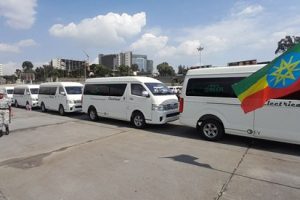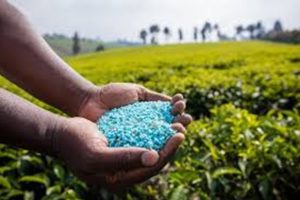
BY ABEBE WOLDEGIORGIS
Free trade zones are part of special economic zones and accomodates companies which provide logestics services with value addition, production works and trade activities.
In addition to these, it has no inhibitive environment to conduct trade. Investors function with reduced tariff and tax.
Recently, The Dire Dawa Free Trade Zone Park was inaugurated by Prime MinisterAbiy Ahmed which is believed to improve Ethiopia’s entire economy by boosting the import and export trade of the country.
The establishment of the free trade zone is one of the initiatives set in the 10-year Perspective Development Plan of Ethiopia.
Dire Dawa is selected to be the first free trade zone due to its proximity to ports, market potential and huge cargo gravity as well as suitability for multimodal transport and logistics operation.
“Increasing the economic and technological capacity of our country while traveling in the same old way is a cumbersome journey. We need to follow new and innovative pathways. The world is changing exponentially. Trying to accept the new world with old thinking is considered as good as carrying our youth on our shoulders in the same way we carried them as children,” the Premier said.
Earlier to the inauguration of the park, a discussion was held focusing on the establishing of free trade zone in Ethiopia by various stake holders. On the occasion, the Minister of Transport and Logostics, Dagmawit Mogose said that the establishment of free trade zones in the neigbouring countries played pivotal role on conducting business in a speedy manner. However, Ethiopia, with huge economy, vast geographic zones and population, is unabled to establish free trade zone. As the result, it found itself in the disadvantageous position and the Diredawa free trade zone can change the situation to the better.
The reduction of tarrif in the free trade zone attracts investors and will make them advantageous to gain profit and accumulate capital; creates new jobs and berauecratic hurdles also will be minimized.
Cognizant of the value of free trade zone and its multiple effects on the economy, the government identified the weakness and strengthen of the logestics and transportation sector. In addition, it analysed the the external challenges and opportunities and subsequently, prepared the national strategy helpful to modernize the sector.
The document has 6 main parts and 22 sub strategies and 98 intiatives that intended to raise the status of the Ethiopian logistics and transport sector improving its rank in the world from the current 144th to 40th in the coming 10 years. In addition, it intends to establish huge free trade zone in the mentioned period.
Based on the strategy, in the last two years broad study has been conducted and proved that the vitality of the strategy and the national logistics council endorsed the establishment of the economic zone and the Diredawa economic zone is taken as one pilot programe. If the project is succussfull, it improves the nation’s logistics system; boosts the Ethiopian trade in the world market; suports industry and urban development; creates job opportunities; reduces living cost and boosts total economic growth.
The Addis Ababa University Vice President Mateos Ensermu (associate proffeesor) on the occasion said that free trade zone has various names and among others industry free zone and export processing sites.
He further said that there are 54000 free trade zones in the world. For example, the Chinia Shenzen and hinan export processing zones are freely conducting their business without bureaucratic hurdles and intervention from the government offices.
The establishment of free trade zone in Ethiopia can be mentioned as exemplary to other countries and brings socio economic benefit to the nation and its people.
The free trade zone mainly focuses on three basic sectors. The first one is related with the productive sector including supplying its products to the local market or export to the foreign markets. The second one focuses on import and export firms which include raw materials and finished goods. Importers store their goods in the free trade zones, process and re export it.
In addition to these, to facilitate the business services such as Banks, insurances, dry loads and consultancy services will be provided in coordinated manner.
The revenue system and other laws implemented there also facilitate the business. Investors working in the free trade zones such as importers and exporters will benefit by obtaining high revenue from their business.
This again attracts both local and foreign investors to work there. In line with these, securing hard currency from banks, boosting export, increasing diversification of export products and attracting foreign investment will be realized. Enhancing government’s revenue, enabling knowledge and technology transfer and advancing workers’ skills will also be possible.
The Sea Logistics Service Organization Executive Director Roba Megersa on his part said that, the establishment of the free trade zone brings good opportunities to his organization and the Diredawa dry port which earned 78 million Dollar before tax and 100 million Dollars after tax creates more chances to boost the economy.
As to Roba, the establishment of free trade zones in Africa facilitates trade connections between the counries. Inaddition, through enjoying free tax chances, countries will benefit more.
As Ethiopia is a land locked country, its bulkey goods are mainly imported and exported through port of Djibouti and Diredawa is located in the nearest place of the port. There are sufficient rail way and road transport facilities for the trade from and to Djibouti which makes the free trade zone advantageous.
The Ethiopian Maritime Authority Executive Director Engineer Yehualashet Jembere on his part said that about 70 items imported from abroad via Djibouti and stored in the eastern part of Ethiopia and 50 of the items are stored in Diredawa. Because of these, establishing free trade zone in Diredawa has significant value.
“In Dire dawa, there is the Diredawa industry park which is well developed and completed four years ago and the nation still pay the debt owed due to the construction of the park. However, because of the delay of investors in starting business there, they could still unable to share the cost and left the burdon to the government” Yehualshet said.
Therefore, the establishment of the free trade zone necessitated the availability of industry parks in Diredawa. The availability of rail transport, infrastructures, industrial parks and dry port created good opportunity to realize free trade zone. The road that connects the industry parks to the dry port is eying its completion. The availability of other basic necessities such as electric power, telecommunication services, feeder roads, piped water made the city to be preferable to establish the free trade zone.
Kiya Tekalign serves as Strategic Advisor in the Industry Park Development Corporation. As to him, the formation of the free trade zone has been conducted with the cooperation of the concerned government profit making organizations.
For the last months, formulating of laws and regulations helpful to swift doing business has been carried out and it has finished its preparation to kick off the operation.
There are more than five thousand economic zones in the world and play pivotal role for accelerating doing besiness and boosting the economy in the developed countries. They facilitated job creation, substituting imports and knowledge transfer.
Kiya also said that free trade zones played vital role in African countries such as Djibouti, Somaliland, Kenya and Ethiopia drew lesson not only from these countries but also from Far East and Turky.
Though study is still going on, towns such as Mojo, Adama and sumera are prefred for establishing free trade zones in the futute because they are located in the trade cooridor of Ethio- Djibouti.
THE ETHIOPIAN HERALD FRIDAY 26 AUGUST 2022





